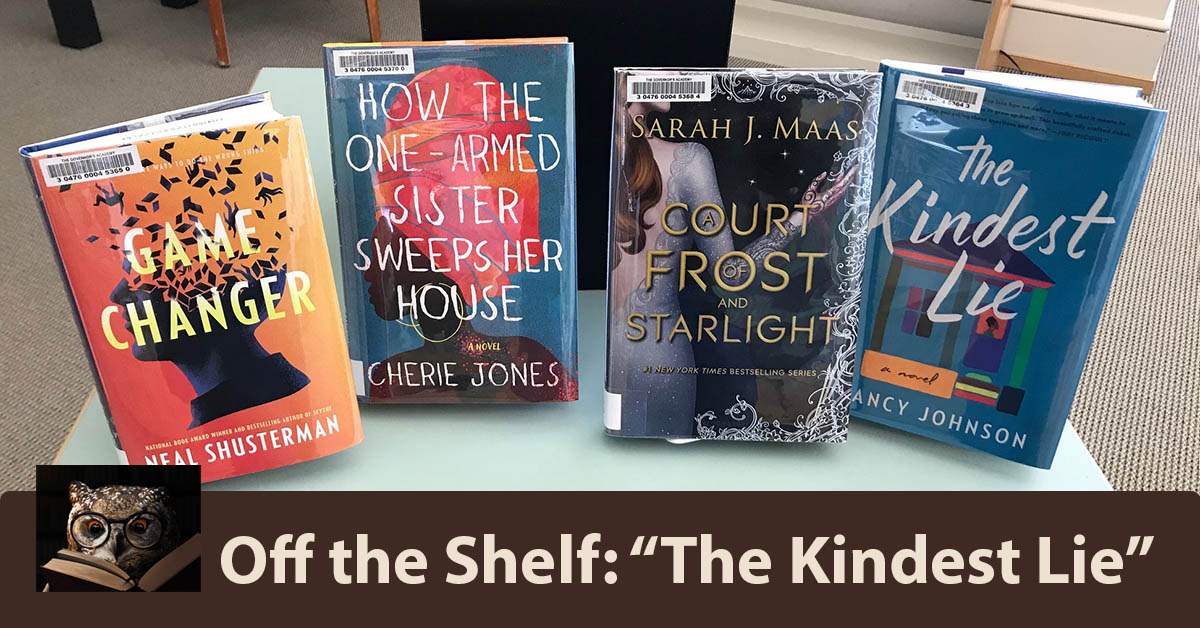Just as I can’t expect my few Black friends to answer all questions about what it’s like to be Black, I also cannot expect a Black author to explain everything about racism. Nancy Johnson, author of The Kindest Lie, cannot be one of my few “Black author friends.”
I joined an online book club because of The Kindest Lie; I “met” the other book club members during a webinar about how racism is featured in fiction, and how fiction affects racism. We decided we would like to get together to talk about it. This book club is made up of about 70 people from different parts of the country, open to anyone, but this group included seven to eight white women of varying ages and backgrounds.

We all thought the book was not well-written. In fact, most of us were very disappointed in it. The book left us with more questions than answers: Why were we so disappointed? What were we missing? Were we missing something that black readers would have understood? What was going on with all the other characters?
Here’s a bit about the book: The protagonist in this story, Ruth, grew up in a small town in Indiana in the 1980s. She gave up a baby when she was 17 years old and went on to college at Yale University. She gets married and doesn’t tell her husband about the baby she gave up.
Years later, Ruth finally does tell him and then decides she needs to go find the child, who is now 11. She goes back to her hometown in Indiana and begins the search. The Kindest Lie is about Ruth’s quest to find the child she gave up. Along the way, she is forced to deal with some truths, half-truths, and full-out lies.
We realized that one reason we were disappointed in The Kindest Lie is because Jodi Picoult, an award-winning author we all loved, had so strongly recommended this book. We expected more of her caliber of writing. In hindsight, this is very unfair, as this is Nancy Johnson’s first book.
In addition, Johnson attempted to tackle a fairly big topic: why Black girls in the 1980s felt they had to give up their children so they could be successful.
I think part of my frustration with this book is that Johnson dipped her toes into the pool of racial inequality in this book, but didn’t really dive in. The characters were not filled out. We were given Ruth’s perspective, but even that wasn’t fully developed. There were so many rich characters whose perspectives could have added to the story, but they were peripherally addressed — and then left behind.
In some ways, this book reaffirmed to me that I need to continue to read books written by people of color.
Really, I need to continue to read books written by anyone who is not like me, a middle-aged white woman. The more I read from others’ perspectives, the more I’ll understand what it’s like to walk in their shoes.
In addition, as much as I say the book was not well-written, its story has stuck with me. I’m left thinking about what lies are “kind.” Are any lies really kind? Is that a way to justify a lie? And, as mentioned above, my thirst for understanding others’ experiences has not yet been quenched.
For my book review of The Kindest Lie, I give 4 out of 5 stars!
(cover photo by Pesky Librarians-Flickr)






